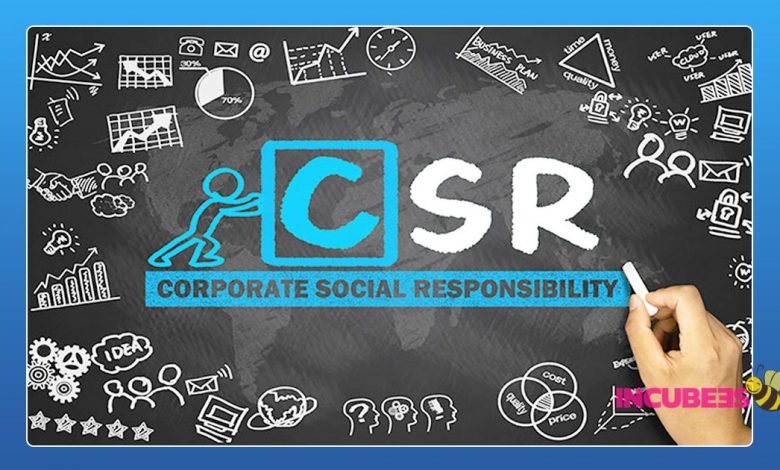6 Reasons Why Startups Need CSR in 2020

In the beginning stages, a startup usually has a lot to lose. These are the moments where every decision that you make could determine whether your business is going to succeed or fail. The thought of corporate social responsibility is not one that we would be fond of entertaining at that moment. Not because we do not care for the community, but because we feel we do not have enough to spare yet. But, what if social responsibility was one of the factors that could positively impact our business?
Corporate Social Responsibility (CSR) can be explained as a company’s desire to assess and take accountability for its effects on the environment and society. It goes beyond what is required of them by the law. It involves incurring costs that will not reap any financial fruits but are aimed at promoting positive environmental and societal changes . Thus, if you are in the process of getting your business off the ground, incorporating CSR into your core principles will prove to be invaluable over time.
Here are 6 reasons why a startup should embrace corporate social responsibility:
1. Forge valuable relationships
Building long-lasting business relationships is the cornerstone of every startup. One survey done a global advertising agency, indicated that over 50% of customers were willing to pay a 10% premium on goods if the company was involved in philanthropic endeavors. Sound good right? There is even more.
Other research shows that over 68% of consumers globally were willing to remain loyal to a company that practiced social responsibility. Not only will practicing CSR get you clients and earn you profits, but it will also ensure your brand’s longevity.
2. Enhances your image and reputation
For you to get clients, your brand image must exude trustworthiness. At a time when people are getting increasingly wary of corporations that seem out to extort them, having a positive brand image can do wonders to your business.
From the onset, align your brand with social responsibilities and potential clients will be willing to give your brand a try. This is because giving back shows that you care about more than just making profits; it earns you their trust. Your brand will receive a positive response and clients are more than likely going to endorse you to their peers.
3. Attract and retain quality employees
The psychological effect that being generous and giving back to the community has on employees is truly astounding. Everyone wants to feel as being part of something greater than them. There is nothing that achieves this feeling like being part of a company that regularly participates in CSR.
A CSR initiative boosts employee morale, increases cohesion among the staff, and builds pride within the company. This not only gets and retains you quality employees, but it actually makes them more productive since they have a sense of purpose.
4. Attracts investors and shareholders
A company that regularly gives back to the community is perceived as thriving. Shareholders and investors may want to buy your stock or invest in your business based on this notion alone.
Additionally, if they do realize that you are a startup, they will be more willing to invest in your brand because philanthropy is a strongly shared value among investors. Also, having corporate social responsibility as a core principle shows that you have long-term aspirations; which is a highly attractive trait to would be investors.
5. Brand differentiation
When you enter the industry, chances are that you will have competition. Using CSR to your advantage is critical to gaining an edge over your competition. Potential clients will be more inclined to go with the brand that seems to care more about them.
6. Humanity
At the end of the day, whether you are doing it as a business strategy or for whatever reason, if you do not truly value giving back to the society, you will not be able to sustain the practice for long. Publicity and profits aside, you want to leave the world a better place than you found it. It gives your brand a sense of purpose and commitment.
Most startups do not put corporate social responsibilities in their list of ‘must-dos’ at their inception. They figure that they will begin as soon as they start making tidy profits. Gone are the days where you could just send a check to a charity organization every once in a while and say you have exercised your social responsibility.
Corporate social responsibility now requires you to be not only actively involved in your efforts, but to be consistent with them too. Social responsibility should not be viewed as a curb appeal but as a core principle of the brand. The impact it will have on your brand will be long-term and rewarding.





